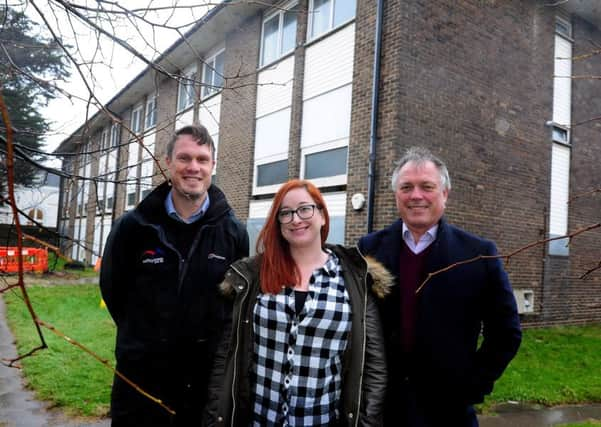Number of rough sleepers in Worthing rises


According to council estimates, the number rose by 46 per cent from 2016 to 2017.
The town is one of eight authorities outside of London which has recorded an increase in the number of people rough sleeping, according to a report recently released by the Ministry of Housing, Communities and Local Government.
Advertisement
Hide AdAdvertisement
Hide AdA spokesman from Worthing Borough Council said that since the figures were recorded, more than 20 rough sleepers had been provided with accommodation.
The spokesman said: “The council and our partners are committed to the prevention and tackling of rough sleeping.”
In 2017, the council changed the way it recorded rough sleepers, the spokesman added.
Before 2017, the number was based on street count figures, which is a snapshot taken on a single specific night.
Advertisement
Hide AdAdvertisement
Hide AdBut in order to make sure appropriate resources were allocated and targeted at those most in need, the council and partner agencies decided to move to an intelligence-based estimate last year, said the spokesman.
In 2016, there were an estimated 24 people sleeping rough – a number which rose to 35 in 2017.
John Holmstrom, chief executive of Worthing Churches Homeless Project, said he was ‘a little bit taken aback’ by the findings at first.
But he said that, because the charity was getting better at engaging with rough sleepers, the issue was becoming ‘less underground’ and ‘hidden’.
Advertisement
Hide AdAdvertisement
Hide AdAgencies therefore had a ‘clearer picture’ of the situation, he said, adding: “We are probably reflecting the true need that was always there. We are really dealing with it.”
Underlying reasons for a rise in homelessness included changes to housing benefits and a lack of social housing as well as private rented housing, he said.
Rough sleepers often faced very long waiting times to secure a bed in a hostel because of the high demand, he added.
It was therefore ‘very timely’ that permission had been granted for a 37-bed temporary accommodation block for the homeless, which Mr Holmstrom said would go ‘a long way’ in helping to reduce the number of rough sleepers in the town.
The council agreed the new block would provide ‘support, advice and accommodation to those most in need’.